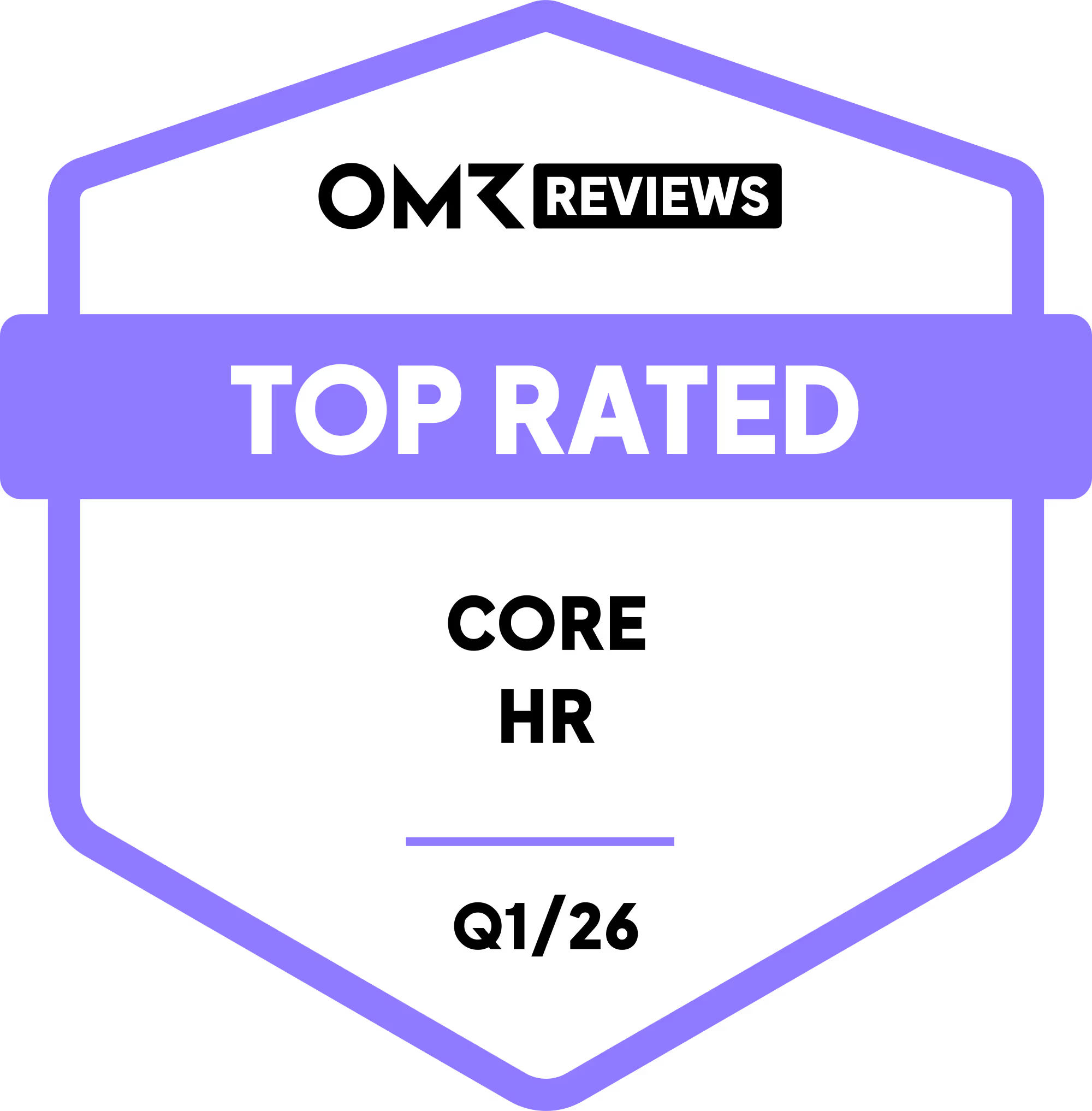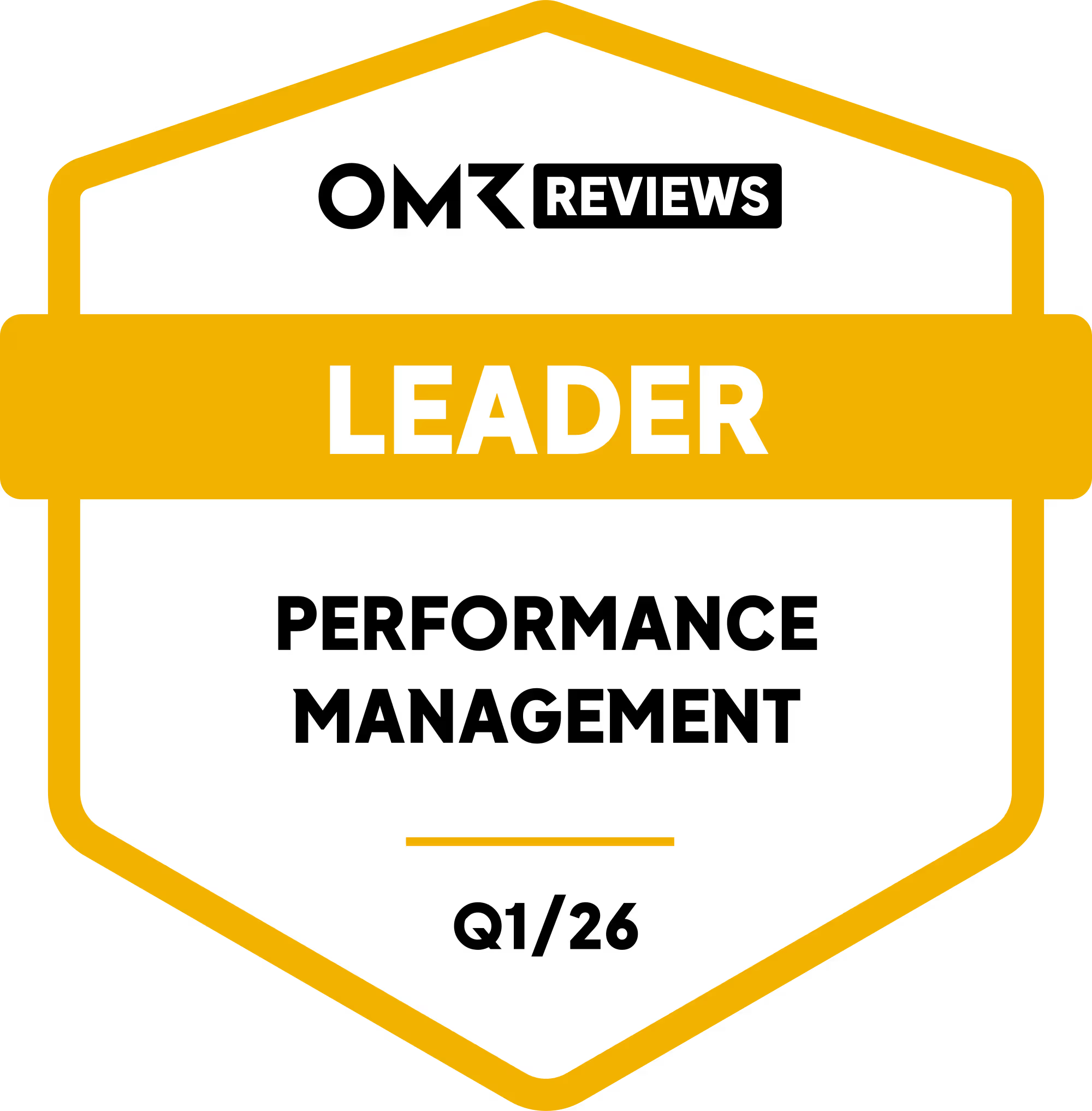Was ist Zusatzvergütung? Definition, Bedeutung & was es nicht ist

2022 war das Jahr des Mitarbeiters — doch 2023 und 2024 kam es zu einer scharfen Wendung. Die Herrschaft der Mitarbeiter kam mit einer drohenden Rezession, Budgetkürzungen und weitreichenden Entlassungen zum Erliegen.
Während sich Unternehmen mit diesem Szenario auseinandersetzen, haben sie es auch mit einem gravierenden Mangel an Talenten zu tun und suchen nach Möglichkeiten, bestehende Teammitglieder an sich zu binden. Das Gehalt ist natürlich immer noch ein wesentlicher Bestandteil des Pakets.
Wenn Ihr Unternehmen Boni, Abfindungspakete oder Eigenkapital anbietet, handeln Sie mit zusätzlichen Löhnen (und sollten das Beste daraus machen). Sie möchten auch vermeiden, dass zusätzliche Löhne, die unter verschiedene Steuerklassen fallen, steuerpflichtig sind.
Das ist eine Menge zum Nachdenken, aber es besteht kein Grund zur Panik. In dieser Kurzanleitung erklären wir Ihnen, was als Zusatzlohn gilt, warum er für Unternehmen jeder Größe wichtig ist, und einige Beispiele dafür, was als Zusatzvergütung gilt — und was nicht.
Was bedeutet Zusatzeinkommen?
Der Zuschlag ist monetär Vergütung dass ein Arbeitgeber einem Arbeitnehmer zusätzlich zu seinem Grundgehalt zahlt. Sie werden oft hören, dass es als Zusatzlohn bezeichnet wird, und es beinhaltet die Bezahlung von Überstunden. Anreizvergütung, Prämien, aufgelaufenes Krankengeld oder alles, was zusätzlich zum regulären Einkommen einer Person hinzukommt. Beachten Sie jedoch, dass Krankenversicherung und andere Leistungen an Arbeitnehmer keine Form von Zusatzlöhnen sind und als Lohnnebenleistungen gelten.
Denken Sie daran, dass Zusatzlöhne steuerpflichtiges Einkommen sind und Unternehmen dafür verantwortlich sind, zusätzliche Gehälter zu verfolgen und zu melden und den entsprechenden Betrag der Bundeseinkommensteuer von den zusätzlichen Löhnen eines Mitarbeiters einzubehalten. In den Vereinigten Staaten unterliegen Zusatzlöhne den Bundesversicherungsbeitragsgesetz (FICA) Steuern, was bedeutet, dass Arbeitgeber Sozialversicherungs- und Medicare-Beiträge sowie die Bundesarbeitslosensteuer einbehalten müssen.
Also, was bedeutet Zusatzeinkommen? Im Wesentlichen bezieht sich der Begriff auf alle zusätzlichen Einnahmen, die über das reguläre Gehalt eines Mitarbeiters hinausgehen und als Zusatzeinkommen eingestuft werden. Um Zusatzeinkommen zu definieren, ist es wichtig, die verschiedenen Komponenten und ihre steuerlichen Auswirkungen zu verstehen. Das Verständnis der Bedeutung von Zusatzeinkommen kann Unternehmen dabei helfen, ihre Gehaltsabrechnung effektiver zu verwalten.
Zusatzlöhne im Vergleich zu regulären Löhnen
Je nach Beschäftigungsland können Zusatzverdienste anders besteuert werden als reguläre Einkünfte. Die Regeln für den Abzug von Steuern auf Zusatzlöhne hängen in der Regel davon ab, wie viel Geld ein Arbeitnehmer pro Jahr an Zusatzlöhnen erhält und ob diese mit regulären Löhnen kombiniert oder getrennt geführt werden.
Betrachten wir ein Unternehmen in den Vereinigten Staaten. Angenommen, Sie zahlen Teammitgliedern einen Bonus in einem separaten Scheck. In diesem Fall verlangt der Internal Revenue Service (IRS) von Ihnen, dass Sie die Bundeseinkommensteuer in Höhe von pauschal 22% für zusätzliche Löhne bis zu 1 Million US-Dollar einbehalten.
Aber nehmen wir an, Sie zahlen den Bonus als eine Summe aus zusätzlichen und regulären Löhnen innerhalb desselben Schecks aus, ohne anzugeben, dass es sich um eine Bonuszahlung handelt. In diesem Fall berechnen Sie die Steuereinbehaltung auf der Grundlage des Quellenbetrags des Mitarbeiters, der in seinem W-4-Formular angegeben ist. Dies kann zwar dazu führen, dass das Einkommen eines Mitarbeiters in eine neue Steuerklasse fällt, aber das bedeutet nicht, dass der Bonus anders besteuert wird.
🚀 Bringen Sie Ihre Vergütungsplanung mit Leapsome auf die nächste Stufe
Leapsome bietet die Einblicke und Planungstools, die Sie benötigen, um Ihr Vergütungsmanagement zu optimieren.
👉 Erfahre mehr
Warum ist eine Zusatzvergütung wichtig?
.png)
Zusätzliche Löhne helfen Unternehmen, neue und aktuelle Mitarbeiter zu gewinnen, zu halten und zu belohnen, ohne sich auf ihr reguläres Gehalt verlassen zu müssen und Gehaltserhöhungen allein um sie zu motivieren.
Eines der nützlichsten Dinge, die Unternehmen in Bezug auf zusätzliche Gehälter tun können, besteht darin, diese offen mit den Teammitgliedern zu besprechen. Auch wenn Mitarbeiter diese Informationen in ihren Verträgen haben, ist es wichtig, Gespräche zu führen, um sicherzustellen, dass sie verstehen, wie Zusatzeinkommen in Ihrem Unternehmen funktioniert.
Beginnen Sie diese Diskussionen und sammeln Sie die Gedanken der Menschen zum aktuellen Ansatz Ihres Unternehmens im Bereich des Vergütungsmanagements, indem Sie eine Mitarbeiterbefragung oder während Einzelgespräche zwischen Managern und Berichten.
💡 Sie fragen sich, wie Sie auf Umfrageergebnisse reagieren können? Lesen Sie unseren Leitfaden zur Erstellung eines Aktionsplan für die Ergebnisse der Mitarbeiterbefragung.
Was gilt als Zusatzvergütung?
Zusätzliche Löhne können in vielen verschiedenen Vergütungsarten enthalten sein, und es liegt an der Führung eines Unternehmens und Vergütungsplanung das Personal muss festlegen, wie sein zusätzliches Gehaltssystem aussehen wird.
Laut IRS, in den Vereinigten Staaten gilt Folgendes als Zusatzvergütung:
Bezahlung von Überstunden
Überstundenvergütung ist Geld in Form von Löhnen, das ein Arbeitnehmer verdient, der zu jeder Zeit über eine 40-Stunden-Arbeitswoche hinaus arbeitet. Dies gilt insbesondere für Teammitglieder, die einen Stundenlohn anstelle eines festen Gehalts erhalten. Gemäß der Gesetz über faire Arbeitsstandards (FLSA) müssen US-Arbeitgeber ihren Arbeitnehmern für jede über 40 Stunden geleistete Arbeitsstunde das 1,5-fache des regulären Lohns zahlen.
Kumulierter Krankenstand
Unternehmen, die bezahlten Krankenurlaub für Arbeitnehmer anbieten, können sich dafür entscheiden, ungenutzten Krankenstand in Form von Zusatzlöhnen auszuzahlen. Das Gesetz über familiären Krankenurlaub (FMLA) verlangt auf Bundesebene keine bezahlte Krankenzeit, und ob eine Organisation Krankenurlaub zahlen muss, hängt von den Unternehmens- und Landesgesetzen ab.
Abfindung
Wenn eine Person ihre Stelle aufgrund einer Kündigung verlässt, hat sie möglicherweise Anspruch auf eine Abfindung, sofern der Arbeitnehmer und der Arbeitgeber dies in ihrem Arbeitsvertrag vereinbart haben — und wie immer unter Einhaltung der örtlichen Gesetze.
Unternehmen gewähren häufig Abfindungen, um den Übergang aus dem Arbeitsverhältnis zu erleichtern und einen schlechten Willen zwischen dem Unternehmen und dem ehemaligen Mitarbeiter zu vermeiden. Je nachdem, wie das Unternehmen sein Abfindungspaket strukturiert, kann die Abfindung in einer einzigen Zahlung oder in Form von Schecks über einen bestimmten Zeitraum verteilt ausgezahlt werden.
Rückwirkende Gehaltserhöhungen
Eine rückwirkende Gehaltserhöhung ist eine Zahlung an einen Mitarbeiter, um die Differenz zwischen dem Betrag, den er in einer vergangenen Gehaltsperiode erhalten hat, und dem geschuldeten Betrag auszugleichen. Dies kann passieren, wenn ein Arbeitnehmer am Ende der Lohnperiode eine Gehaltserhöhung erhält, die sich erst in der nächsten Gehaltsperiode auf seinem Gehaltsscheck niederschlägt.
Boni
Boni sind zusätzliche Lohnzahlungen, die Mitarbeitern als motivierende Anreize oder Leistungsbelohnungen angeboten werden. Sie sind oft Teil der Bindungsstrategie eines Unternehmens. Zu den gängigsten Arten gehören Unterzeichnungs-, Empfehlungs- und Bindungsboni. Einige Organisationen geben Boni in bar aus, während andere andere Formate (wie Aktienoptionen) anbieten.
Eigenkapitalvergütung
Die Eigenkapitalvergütung (Bezahlung in Form von Aktienoptionen) ist eine beliebte ergänzende Gehaltsstrategie für neue und wachsende Unternehmen — insbesondere für Unternehmen, die mit ihrem Grundgehalt oder anderen steuerpflichtigen Nebenleistungen nicht so wettbewerbsfähig sein können. Wenn ein Unternehmen Boni in Form von Aktienoptionen anbietet, bittet es die Mitarbeiter, auf ihren zukünftigen Erfolg zu setzen; das zahlt sich manchmal aus, aber nicht immer.
Wenn Sie wissen möchten, wie die Teammitglieder die aktuellen Gehaltsstrukturen, die zusätzlichen Gehaltspakete und die allgemeine Position Ihres Unternehmens beurteilen, Net Promoter Score (eNPS) für Mitarbeiter ist eine effektive Metrik, die einfach einzuführen und zu verwenden ist.
Was gilt nicht als Zusatzvergütung?
Leistungen wie Stipendien, Urlaubsgeld und bezahlter Urlaub (PTO) gelten nicht als zusätzliches Einkommen. Für Urlaubsgeld und PTO wird dieselbe Einkommensteuer einbehalten wie für reguläre Löhne.
- Stipendien: Feste Geldsummen wird Mitarbeitern für bestimmte Zwecke gezahlt, z. B. für Reisen, Kinderbetreuung oder nicht abzugsfähige Umzugskosten. Ein Stipendium gilt nicht als Zusatzvergütung, da es nicht als Gegenleistung für Arbeit gezahlt wird. Das Ziel besteht in der Regel darin, die Ausgaben auszugleichen, die die Mitarbeiter bereits haben.
- Urlaubsgeld: Urlaubsgeld gilt nicht als Zusatzvergütung, da es technisch gesehen Teil des regulären Einkommens eines Mitarbeiters ist, obwohl er es erhält, wenn er nicht arbeitet.
- PTO: Bezahlter Urlaub ist eine Entschädigung für jede arbeitsfreie Zeit, einschließlich Krankheitstage und Urlaubstage. Genau wie Urlaubsgeld gilt es nicht als Zusatzvergütung, da es als Teil des Haupteinkommens eines Mitarbeiters angerechnet wird.
Variable Vergütung, wie Boni oder Prämien, gelten als zusätzliches Einkommen, da es auf der Grundlage der Leistung oder der Erfüllung bestimmter Ziele gewährt wird.
💡 Es ist okay, es zu haben Gehaltsüberprüfungen basierend auf den Leistungsergebnissen der Mitarbeiter!
In der Tat Vergütungsgespräche zur Leistungsbeurteilung bieten eine hervorragende Gelegenheit, die zusätzlichen Gehaltsangebote Ihres Unternehmens mit Teammitgliedern zu besprechen.
Belohnen und entschädigen Sie Ihre Mitarbeiter mit Leapsome

Wenn Sie Ihren Mitarbeitern reguläre und zusätzliche Löhne anbieten, sind Sie bereits auf dem richtigen Weg, um sicherzustellen, dass sie sich belohnt und motiviert fühlen. Sie zeigen auch, dass Sie sie fair und nach Ihren Wünschen entlohnen Vergütungsphilosophie und Unternehmenswerte sind wichtig für Ihr Unternehmen.
Einen Stammgast haben Prozess zur Überprüfung der Vergütung gibt den Teammitgliedern das Gefühl, sicher zu sein und gibt ihnen etwas, auf das sie hinarbeiten können. Mit Leapsome Compensation können Sie Folgendes implementieren Gehalts-Benchmarking mit Mercer Daten, um Ihre Vergütung wettbewerbsfähig zu halten und den Industriestandards zu entsprechen — und so die Mitarbeiterzufriedenheit und Mitarbeiterbindung weiter zu steigern.
Diese Prozesse können jeden überfordern. Stellen Sie daher sicher, dass Sie über Tools verfügen, mit denen Sie Mitarbeiter nachverfolgen können. Vergütungsgespräche und sehen Sie, wie sich die Teammitglieder fühlen. Und mit Leapsome können Sie beides auf derselben Plattform tun!
🚀 Holen Sie mit Leapsome das Beste aus Ihrem Vergütungsplan heraus
Unsere Plattform bietet Ihnen die Daten und Einblicke, die Sie für die Planung und Skalierung Ihrer Initiativen im Vergütungsmanagement benötigen.
👉 Eine Demo buchen
Sind Sie bereit, Ihre Strategie zur Mitarbeiterförderung zu verbessern?
your People operations?
Informieren Sie sich über unsere Leistungsbeurteilungen, Ziele und OKRs, Engagement-Umfragen, Onboarding und mehr.
.webp)
.webp)
 Fordern Sie noch heute eine Demo an
Fordern Sie noch heute eine Demo an





.jpg)
































